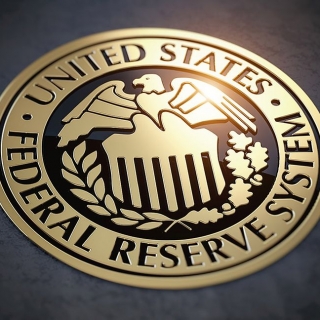


Higher tariffs could begin raising inflation this summer, a period that will be key to Federal Reserve consideration of possible rate cuts, Fed Chair Jerome Powell told members of Congress on Tuesday.
Pressed by Republican members of the House Financial Services committee about why the Fed isn't cutting rates, as President Donald Trump has demanded, Powell said he and many at the Fed expect inflation to start rising soon, and that the central bank was in no rush to ease borrowing costs in the meantime.
Powell particularly said he would not open the door to a rate cut at the Fed's July meeting, as two of his colleagues recently suggested, or at any other session for that matter.
"I do not want to point to a particular meeting. I don't think we need to be in any rush," given a still-strong labor market and so much uncertainty about the impact of the still-unresolved tariff debate, Powell said.
Referring to expected tariff-driven price increases, Powell said "we should start to see this over the summer, in the June number and the July number...If we don't we are perfectly open to the idea that the pass-through (to consumers) will be less than we think, and if we do that will matter for policy."
"I think if it turns out that inflation pressures remain contained we will get to a place where we cut rates sooner than later," he said.
With the central bank largely sidelined waiting for the outcome of the Trump administration's tariff negotiations, Powell was quizzed repeatedly about why the central bank seemed preoccupied with that issue and isn't cutting rates given that inflation so far has been modest.
Powell said that Fed policy isn't meant to endorse or criticize the Trump administration's approach to trade, only to deal with an inflation impact that the Fed and forecasts more broadly expect to gather momentum over the rest of the year.
"We aren't commenting on tariffs," Powell said. "Our job is keeping inflation under control, and when policies have short- and medium-term, meaningful, implications, then inflation becomes our job."
"All professional forecasters I know of...expect a meaningful increase in inflation over the course of this year," Powell said, elaborating on the Fed's reluctance to cut rates while major aspects of Trump's trade policy remain unresolved.
PARING BETS
In prepared testimony to the House panel, Powell noted that those effects "could be short-lived, reflecting a one-time shift in the price level. It is also possible that the inflationary effects could instead be more persistent...For the time being, we are well positioned to wait to learn more about the likely course of the economy before considering any adjustments to our policy stance."
Following the release of Powell's testimony investors pared bets that the central bank might cut its policy interest rate as soon as the central bank's July meeting, and increased the perceived odds for a rate reduction in September, with another to follow later in the year.
Source: Investing.com
Japan's annual inflation rate edged down to 2.9% in November 2025 from October's 3-month high of 3.0%. Core inflation stood at 3.0%, keeping the same pace as in October and aligning with estimates. Mo...
Goldman Sachs sees gold prices climbing 14% to $4,900 per ounce by December 2026 in its base case, it said in a note on Thursday, while citing upside risks to this view due to a potential broadening o...
The BRICS group of countries is increasingly being considered as an alternative for global diplomacy and cooperation amidst increasing tariff and protectionist policies from the United States. A numbe...
Applications for US unemployment benefits fell after a spike in the previous week, underscoring the choppy nature of the data at this time of year. Initial claims decreased by 13,000 to 224,000 ...
Annual inflation in the United States (US), as measured by the change in the Consumer Price Index (CPI), fell 2.7% in November, according to a report by the US Bureau of Labor Statistics (BLS) on Thur...
US stocks closed sharply higher on a triple-witching Friday, with the S&P 500 rising 0,9%, the Nasdaq 100 gaining 1.4%, and the Dow Jones adding more than 180 points, extending gains from the previous session as technology stocks...
European equities closed higher on Friday, with the STOXX 50 up 0.6% and the STOXX 600 rising 0.4% to a fresh record, boosted by expectations of further Fed rate cuts next year and fading bets that the ECB will raise borrowing costs in...
Gold (XAU/USD) Gold (XAU/USD) regains ground on Friday, edging modestly higher after earlier weakness, even as a resilient US Dollar (USD) caps upside momentum. At the time of writing, XAU/USD trades around $4,345, recovering from a daily low near...
 Fed Governor Christopher Waller said Wednesday that the Fed is in no rush to cut interest rates, given the current outlook, according to...
Fed Governor Christopher Waller said Wednesday that the Fed is in no rush to cut interest rates, given the current outlook, according to...
 The Bank of Japan (BOJ) is expected to raise interest rates on Friday to a three-decade high, from 0.5% to 0.75%, signaling readiness for further...
The Bank of Japan (BOJ) is expected to raise interest rates on Friday to a three-decade high, from 0.5% to 0.75%, signaling readiness for further...
 European stocks finished in positive territory on Thursday as traders positioned for central bank decisions today.
The pan-European Stoxx 600 was...
European stocks finished in positive territory on Thursday as traders positioned for central bank decisions today.
The pan-European Stoxx 600 was...
 The United States ordered a blockade of Venezuelan oil tankers because the Trump administration believes President Nicolás Maduro's regime is acting...
The United States ordered a blockade of Venezuelan oil tankers because the Trump administration believes President Nicolás Maduro's regime is acting...